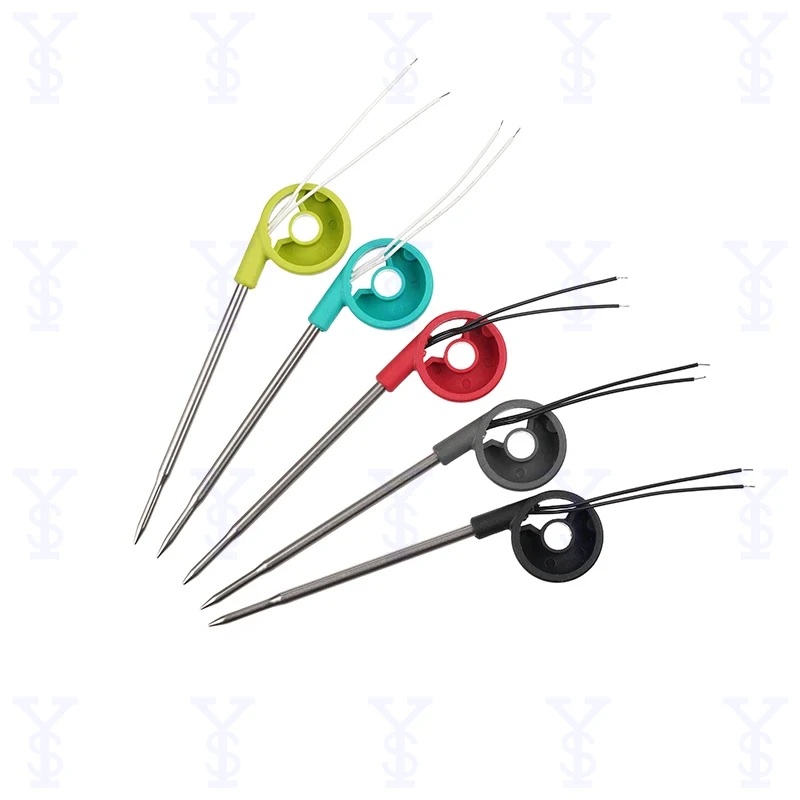Электрондук почта форматында ката
emailCannotEmpty
emailDoesExist
pwdLetterLimtTip
inconsistentPwd
pwdLetterLimtTip
inconsistentPwd


Understanding the Advantages of a Digital Kitchen Food Probe Thermometer
In today's fast-paced world, precision in cooking is not just a luxury but a necessity. The advent of technology has significantly transformed our kitchens, introducing tools that enhance our culinary skills and ensure food safety. One such indispensable tool is the digital kitchen food probe thermometer. This blog will delve into the various benefits of this device, its features, and why every modern kitchen should have one.
Why Every Kitchen Needs a Digital Kitchen Food Probe Thermometer
Ensuring Food Safety
One of the primary reasons is to ensure food safety. Undercooked food can harbor harmful bacteria, leading to foodborne illnesses. With the probe thermometer, you can accurately measure the internal temperature of your food, ensuring it has reached a safe temperature for consumption. This is particularly important for meats, poultry, and seafood, which are often associated with foodborne pathogens.
Precision Cooking
Cooking is both an art and a science. Achieving the perfect doneness for different types of meat, like a medium-rare steak or a perfectly roasted chicken, requires precise temperature control. The probe thermometer allows you to cook your dishes to perfection every time. Unlike traditional thermometers, digital models provide instant and accurate readings, taking the guesswork out of cooking.
Versatility in the Kitchen
Digital kitchen food probe thermometers are not just for meat. They can be used for baking, candy making, brewing, and even checking the temperature of liquids. This versatility makes them an invaluable tool for both amateur cooks and professional chefs alike. Whether you're tempering chocolate, brewing beer, or making yogurt, the probe thermometer can help you achieve the desired results.
Features to Look for in a Digital Kitchen Food Probe Thermometer
Fast and Accurate Readings
The speed and accuracy of temperature readings are crucial. Look for thermometers that provide instant readings within seconds and have a high degree of accuracy. This ensures that you can quickly and reliably check the temperature of your food without interrupting the cooking process.
Dual Temperature Scales
A feature that adds to the convenience is the ability to display both Fahrenheit and Celsius scales. This is especially useful for recipes from different parts of the world. Food probe thermometers that display both Fahrenheit and Celsius scales make it easier to follow any recipe without the need for conversion.
Durable and Easy to Clean
Kitchen tools should be durable and easy to clean. Stainless steel probes are a good choice because they are resistant to rust and easy to sanitize. Look for thermometers with detachable probes that can be easily cleaned or even replaced if necessary.
User-Friendly Design
A good digital kitchen food probe thermometer should be easy to use. Features such as a large, backlit display, simple controls, and a comfortable grip can make a big difference. Some models also come with programmable settings, alarms, and memory functions to store previous readings.
Using a Digital Kitchen Food Probe Thermometer Effectively
Inserting the Probe Correctly
For accurate readings, it is essential to insert the probe correctly. Insert the probe into the thickest part of the food, avoiding bones or fat, which can give inaccurate readings. For large cuts of meat, insert the probe from the side to reach the center of the meat.
Calibrating Your Thermometer
To ensure ongoing accuracy, it's important to calibrate your probe thermometer regularly. Follow the manufacturer's instructions for calibration. Most digital thermometers come with a calibration feature that allows you to adjust the reading if necessary.
Storing the Thermometer
Proper storage of your digital kitchen food probe thermometer can prolong its life. Store it in a protective case to prevent damage to the probe and the display. Avoid exposing it to extreme temperatures or moisture when not in use.
The Evolution of Kitchen Thermometers
From Mercury to Digital
The journey of kitchen thermometers has been fascinating. Traditional mercury thermometers were widely used but had several drawbacks, including safety concerns with mercury exposure and slow response times. The development of digital technology revolutionized kitchen thermometers, making them safer, faster, and more accurate.
Innovations in Digital Technology
Modern digital kitchen food probe thermometers incorporate advanced technologies. Wireless models allow you to monitor temperatures remotely, and some even come with smartphone apps for enhanced functionality. These innovations make it easier than ever to achieve precise cooking results.
Popular Brands and Models
ThermoPro TP20
The ThermoPro TP20 is a popular choice among home cooks and professionals. It features a dual-probe system, allowing you to monitor two different foods simultaneously. The large, backlit display and wireless capabilities make it a user-friendly option.
Weber iGrill 2
The Weber iGrill 2 is another top-rated digital kitchen food probe thermometer. It connects to your smartphone via Bluetooth, providing real-time temperature updates and alerts. The magnetic base allows for easy attachment to your grill or oven.
Lavatools Javelin PRO Duo
The Lavatools Javelin PRO Duo is known for its speed and accuracy. It provides readings in just 2-3 seconds with an accuracy of ±0.9°F. The ambidextrous display and compact design make it a convenient tool for any kitchen.
Frequently Asked Questions
- How Do I Clean My Digital Kitchen Food Probe Thermometer?
To clean your probe thermometer, wipe the probe with a damp cloth and mild soap after each use. Avoid immersing the entire thermometer in water or using harsh chemicals, as this can damage the electronic components.
- Can I Leave the Probe in the Food While It Cooks?
Some probe thermometers are designed to be left in the food while it cooks, especially for use in ovens or grills. Check the manufacturer's instructions to ensure your thermometer is suitable for this purpose.
- What Is the Ideal Temperature for Cooking Different Meats?
Here are some general guidelines for safe cooking temperatures:
- Beef, veal, and lamb (steaks, roasts, and chops): 145°F (63°C) with a 3-minute rest time
- Pork: 145°F (63°C) with a 3-minute rest time
- Poultry (whole, parts, ground): 165°F (74°C)
- Fish and shellfish: 145°F (63°C)
- How Do I Know If My Thermometer Is Accurate?
To test the accuracy of your probe thermometer, you can perform an ice water test. Fill a glass with ice and water, and insert the probe into the mixture. It should read 32°F (0°C). If it doesn't, follow the manufacturer's instructions to recalibrate the thermometer.
Conclusion
A digital kitchen food probe thermometer is an essential tool for any modern kitchen. It ensures food safety, enhances cooking precision, and offers versatility across various culinary tasks. By investing in a high-quality probe thermometer, you can take your cooking to the next level, ensuring delicious and safe meals for your family and guests. Whether you're an amateur cook or a professional chef, this tool will undoubtedly become a staple in your kitchen arsenal.

